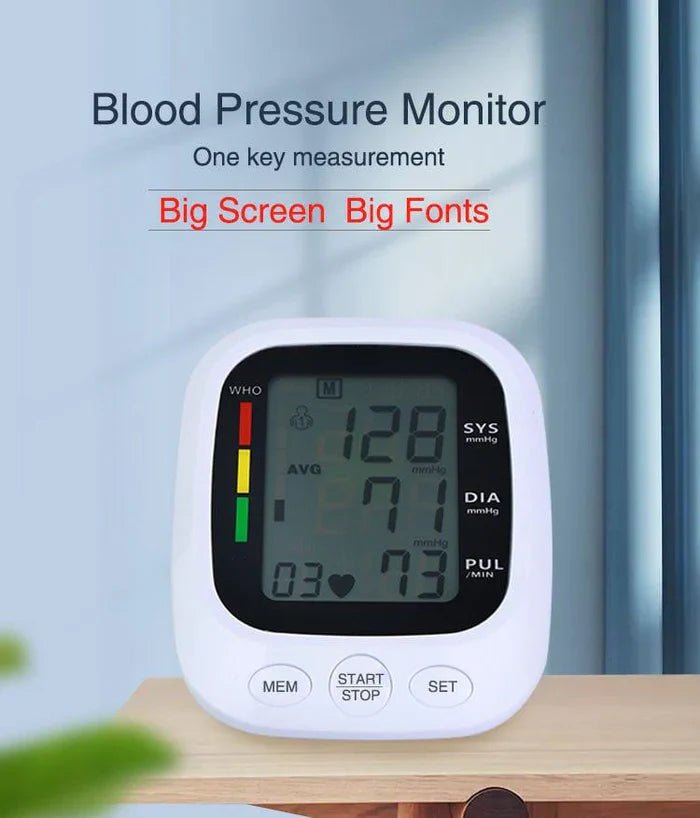If you've ever left a doctor’s appointment with concerns about your blood pressure, you're not alone. In recent years, more people are turning to home blood pressure monitors to keep track of their health. But with so many options out there—from budget models to high-end smart monitors—the big question remains: What is the most reliable blood pressure monitor for home use? In this guide, we’re answering that question and covering everything else you need to know to make an informed purchase.
Are Cheap Blood Pressure Monitors Accurate?
Let’s face it—price is always a factor. You might be tempted to grab a cheap blood pressure monitor online, but accuracy should be your top priority. While some affordable devices can provide decent readings, they often lack consistency and durability. Inaccurate readings can lead to misdiagnosis or unnecessary anxiety.
So, if you're serious about tracking your health, invest in a monitor that's clinically validated. Look for devices with certifications from organizations like the British Hypertension Society (BHS) or the Association for the Advancement of Medical Instrumentation (AAMI).
What Blood Pressure Monitor Do Cardiologists Recommend?
Most cardiologists recommend upper arm monitors from reputable brands such as Omron, Withings, and Microlife. These models are known for their reliability, ease of use, and medical-grade precision. Wrist and finger monitors are often less accurate due to improper positioning during measurements.
In fact, Omron’s Platinum Series and the Withings BPM Connect are frequently recommended by healthcare professionals for home use.
What Brand of Blood Pressure Monitor Is Accurate?
Brand matters. Reliable brands that have earned trust through clinical testing and consumer reviews include:
-
Omron – Known for FDA-cleared models with Bluetooth connectivity.
-
Withings – Offers sleek, modern monitors with app integration.
-
Beurer – German-made devices that are clinically tested.
-
A&D Medical – Popular in clinical settings with simple interfaces.
No matter the brand, make sure it offers a memory function, large display, and adjustable cuff sizes.
How Do I Know If My Home Blood Pressure Monitor Is Accurate?
Here’s a simple trick: Take your monitor to your next doctor’s appointment. Measure your blood pressure with your home device first, then have it checked by a professional. If the readings are within 5 mmHg of each other, your device is doing its job well.
You can also recheck your device every 6 to 12 months, especially if you’re relying on it regularly.
Which Arm to Take Blood Pressure On?
Always use the same arm, preferably the one your doctor recommends. Typically, it's the left arm, since it’s closer to the heart. But if your doctor notices a consistent difference in readings between arms, they’ll guide you on the correct side to use.
Can an Apple Watch Check Blood Pressure?
The Apple Watch has revolutionized wearable tech with features like ECG monitoring, but as of now, it cannot directly measure blood pressure. It can track heart rate and irregular rhythms, which are useful indicators—but for accurate blood pressure readings, a traditional cuff monitor is still your best bet.
Conclusion
Choosing a reliable blood pressure monitor is a crucial step in managing your health at home. Stick with clinically validated models, follow usage instructions carefully, and routinely compare your readings with professional ones. That way, you’ll get dependable results that empower you to stay in control of your heart health

